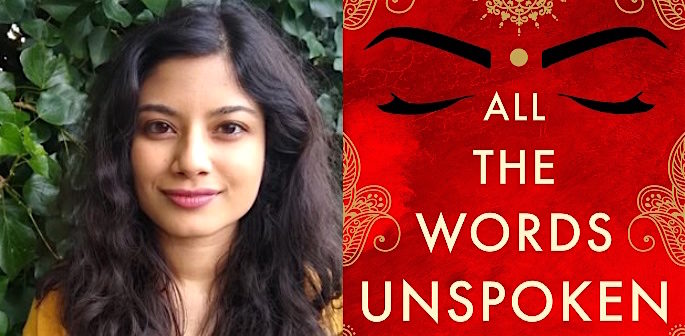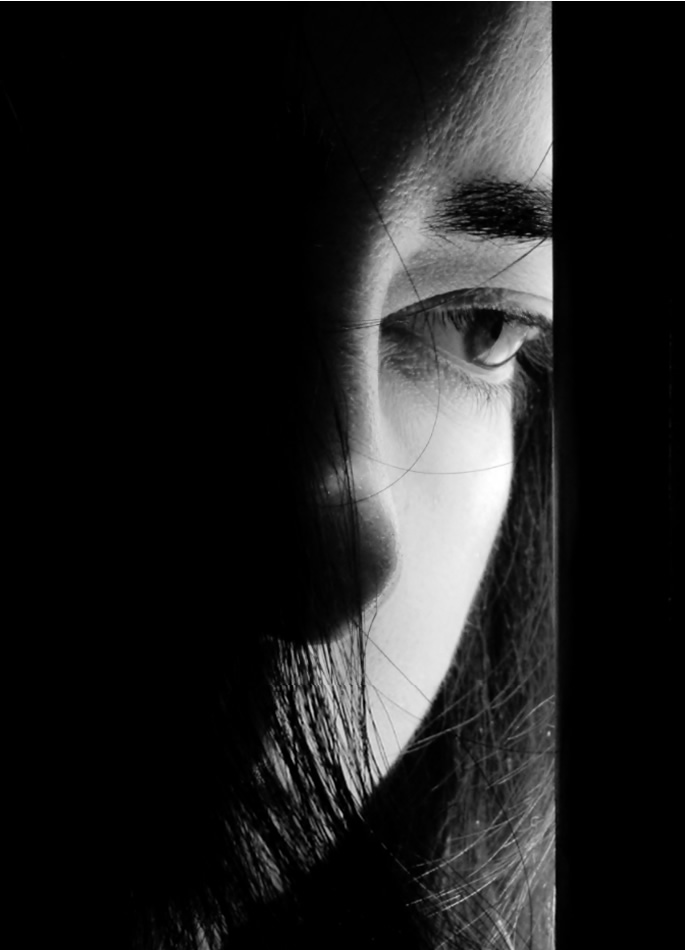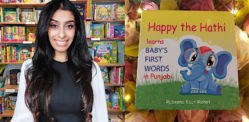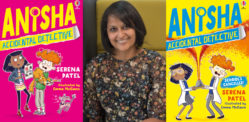"When I wrote this novel, I had to sacrifice basic daily tasks."
Author Serena Kaur delves into exploring the experiences faced by the British Asian community in her novel, ‘All The Words Unspoken’ (2020).
From a young age, Serena was aware that British Asian novels were seemingly missing from bookshelves. Undoubtedly, this was disappointing.
This made Serena question why there was a lack of Asian representations in novels, its characters and stories.
After graduating with an English degree, Serena Kaur took it upon herself to produce her novel, ‘All The Words Unspoken’.
This delicate yet raw novel encapsulates the true essence of British Asian characters and their experiences.
Categorised as a love story, ‘All The Words Unspoken’ tackles depression, sexuality, abortion and colourism.
Typically, many South Asians live with the ‘what will people say?’ mentality. This toxic mentality is brought to light in the novel.
‘All The Words Unspoken’ is packed with secrets, lies and unshakeable love making it an enticing read.
Speaking exclusively to DESIblitz, Serena Kaur opens up about her writing career, her book, sexuality and much more.

What was your childhood like?
“I was a shy and sensitive child. I hated noise and avoided groups of children. I didn’t enjoy playing tag with the rest of my friends and preferred to be by myself or with just one other person.
“I loved to wander the playground and stay locked in my imagination.
“The school bell would ring, and I’d sometimes fail to hear it because I was so absorbed in my own world.
“Stories were forever playing out in my head and if someone was with me, they’d have to act out the scenes in my head with me.
“I was a chronic daydreamer! I can’t say I’ve grown out of the habit of daydreaming.”
What made you choose writing as a career?
“I’ve wanted to be a writer since I was about six years old. I have no idea what made me decide that so young, but I never veered away from that vision or challenged it.
“I couldn’t see myself as anything other than a writer of some kind. Writing is my passion and I’ve always been inclined to follow what I love.”
Speaking about what makes a good author, Serena Kaur explains:
“The ability to capture your reader. I don’t believe your writing needs to be fancy or overly sophisticated. You don’t need to produce a literary masterpiece to be considered a good author.
“If you can keep your reader turning pages and keep them so fixed on your story that they forget they’re reading, that (to me) makes a good author.
“Oh, and getting your reader to feel something. What you write must evoke emotions in your reader!”
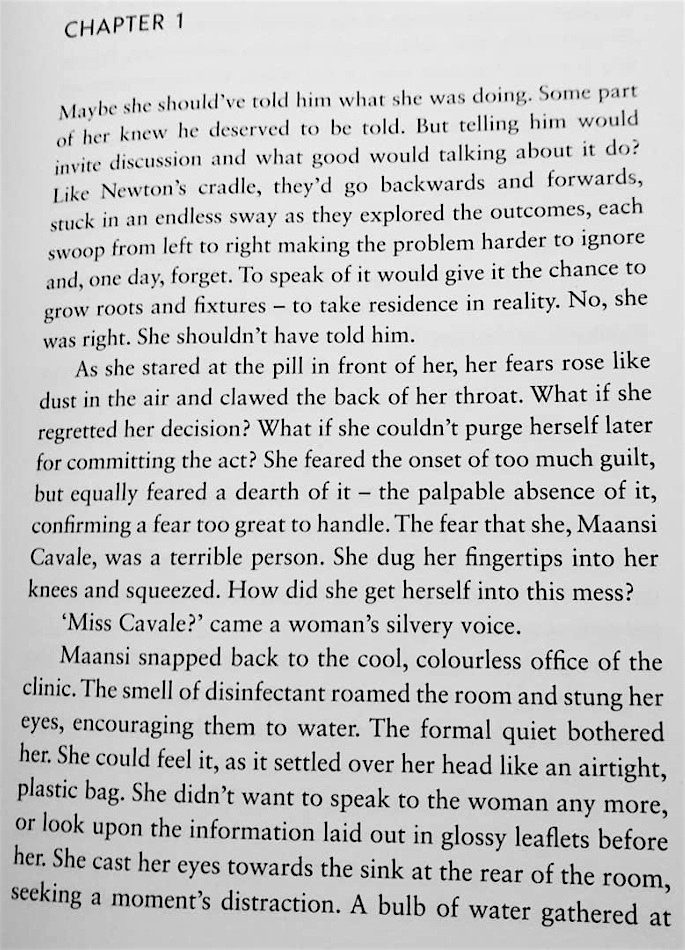
What compelled you to write your book?
“People I cared for and loved were having to tuck themselves away or surrender things that were precious to them.
“They were (and continue to be) afraid of that the ‘what will people say?’ mentality that runs through our community. I wanted to explore the consequences of submitting to that.
“What happens when we aren’t free to live authentically? How do we suffer when we have to hide parts of ourselves to appease others? That’s what All the Words Unspoken is about.”
Serena Kaur continued to reveal who or what her characters are based on. She says:
“The main character (Maansi) has been stitched together with my own insecurities and personal battles.
“Her experience of depression is based on my own, so a lot of my fight is reflected in hers.”
“Not all the characters are based on real people, although the issues they encounter are based on real problems faced by people in my life – problems a lot of people go through in our community.”
What were the challenges for you?
“I tackle some hard topics in this book, including abortion, domestic abuse and mental health.
“I was determined to approach these topics sensitively and represent these experiences as truthfully as possible on the page.
“It’s not an easy task and there is pressure to get it right. I’d like to think I did a good job.
“I did have physical challenges facing me when writing this novel. I have M.E (Myalgic Encephalomyelitis), so I’m mostly housebound and have limited energy.
“When I wrote this novel, I had to sacrifice basic daily tasks. I just didn’t have the energy to do both. This book really was produced through blood, sweat and tears. Most of it was written in bed!”
Accepting your sexuality
Serena Kaur, who identifies herself as bisexual, tell us more about coming to terms with her sexuality. She explains:
“At some level, I’ve always known I’m bisexual. However, I chose to ignore it for years. I didn’t feel I could be open about my sexuality as an Asian woman, so I suppressed that side of me.
“I married a man who I absolutely love, so people have no idea about my attraction towards women. But I do often wonder, what if I had fallen in love with a woman instead?
“I don’t think I’d have been brave enough to pursue that relationship. Log kya kahenge (what will people say?) would have forced me to retreat.
“And anyway, admitting I’m attracted to anyone, man or woman is hard. To do so would mean to admit to feeling sexual attraction and that can lead to awkwardness in an Asian household. It shouldn’t be so difficult!”
Serena further added why she feels sexuality is suppressed by British Asians saying:
“There is this sense of shame wrapped around sexuality. So many of us grow up in families that ignore the existence of sex and sexual attraction.
“I know a large number of us have watched our parents change channels because a kissing scene dared to pop up.
“As a community, we are big on marriage, but for some reason, we ignore attraction and sex. It makes it hard for people to be open about their sexuality.”
Highlighting the need for change in the South Asian community, Serena Kaur said:
“We need to stop caring about the opinions of others. We deserve the space and freedom to be who we are and make our own decisions, regardless of what others may think.
“We also need to speak out when we hear people judging or talking about others. It’s not OK.
“We should be able to talk have open discussions about mental health, sexuality and abortion without the threat of judgement.
“Slowly, things are changing. But we have a long way to go.”
Role models and more
Revealing who her role models are, Serena Kaur says:
“Toni Morrison. Do I write like Toni Morrison? No. I don’t believe I ever could. But I love Toni Morrison.
“She taught me how to write for people of your community and not for the white gaze. She was unapologetic when she wrote. I try to be too.”
We asked Serena what are three Desi things about herself. Interestingly, she disclosed:
“That’s a tough question. I don’t think I can pick out three things that make me Desi. It’s like picking out just three things that make me ‘me.’ I just am! It runs in my blood.
“Even if I were to stop eating Desi food, stop listening to Desi music and dismiss parts of culture altogether, there’s no getting away from my background and my family (and I’d never want to escape either!).
“I’m proud of belonging to my culture and this community. That connection to the motherland is always there, in the fabric of all my experiences and in my upbringing.”
Serena Kaur continues to advise women like herself saying:
“Believe in yourself. It sounds cliché, but so many of us make ourselves small. We believe nobody wants to hear us or our stories.
“Use your voice and trust there is value in what you have to say. You have the right to express yourself and to live life on your own terms.”
There is no doubt that Serena Kaur is confident in herself and her own voice. This confidence and power are mirrored in her novel, ‘All the Words Unspoken’.
The compelling love story challenges our preconceptions of relationships delving deeper into the character’s mentality.
Serena tackles the taboo of several social stigmas in the British Asian society such as sex, sexuality and abortion in her novel.
To purchase a copy of ‘All The Words Unspoken’ click here.




















































